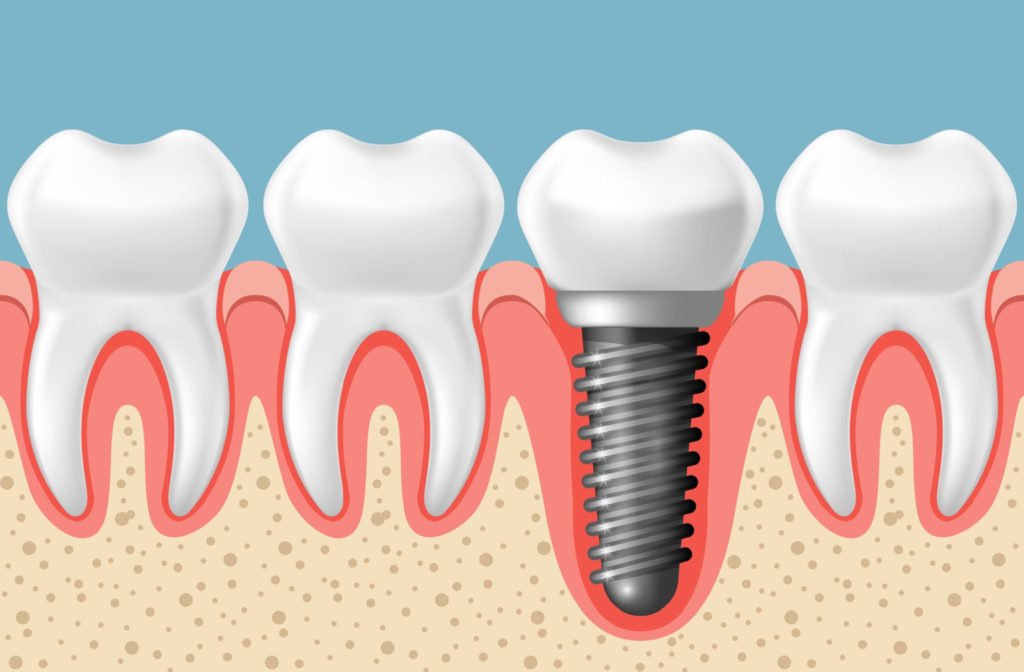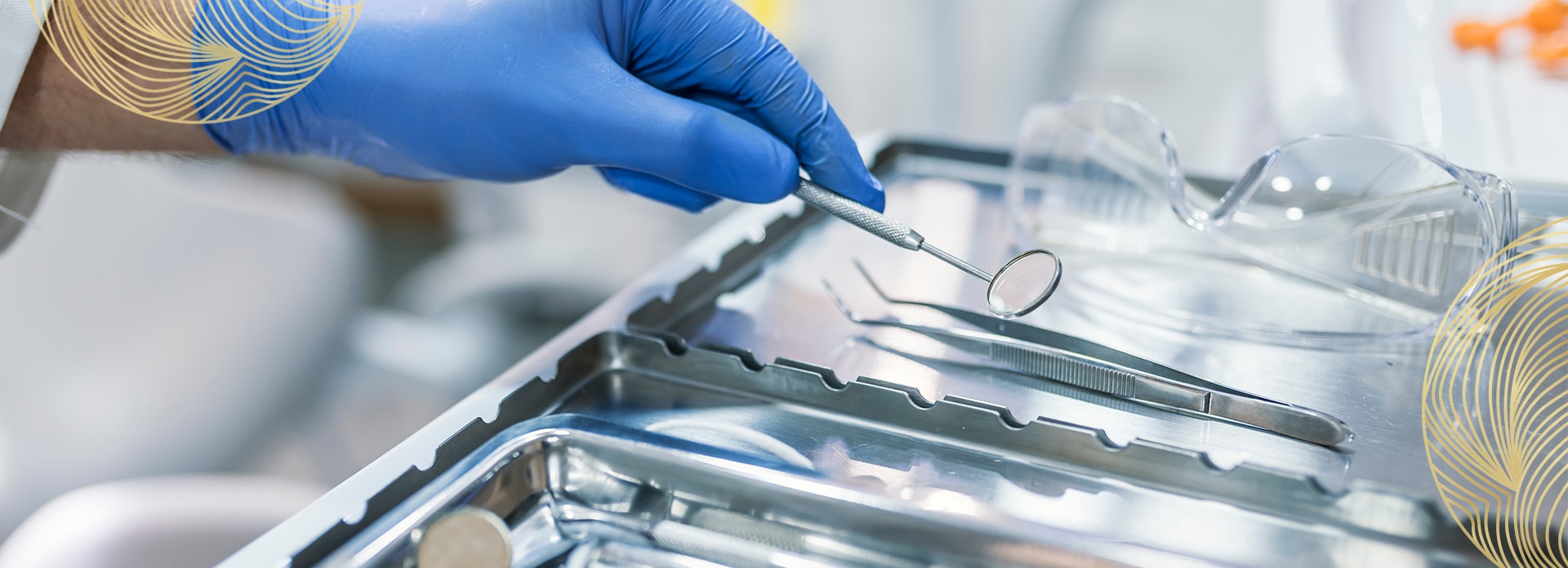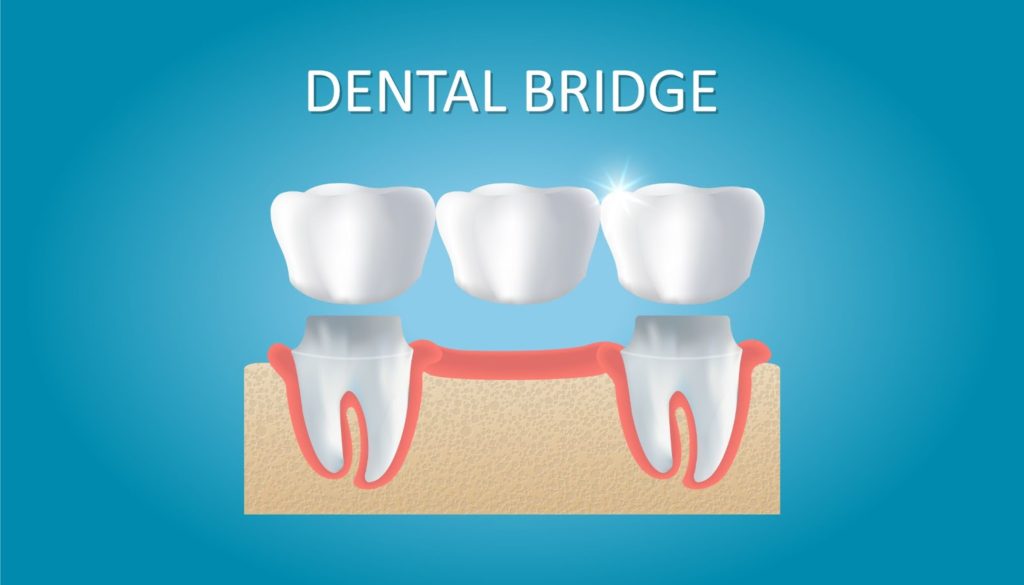Replacing missing teeth can profoundly impact your oral health and the aesthetics of your smile. Two common options available for replacing missing teeth include dental bridges and dental implants.
You may be a candidate for a dental bridge or dental implant if you have one or more missing teeth, are looking to improve the appearance of your smile, want to restore speech and chewing ability, and want to maintain good oral health.
However, it is essential to note that suitability for these treatments depends on various factors such as overall health, lifestyle, and support structure. To find the right solution for your unique situation, it’s vital to visit us for a dental exam. Dr. Cooper can guide you toward a suitable option for your needs.
Dental Bridges
A dental bridge involves crowning the teeth on either side of the gap. These are then used as anchors for the missing tooth or teeth. The laboratory then fabricates a solid one piece prosthesis that is cemented in the mouth that is not removable.
Dental bridges offer multiple benefits, including:
- Restoration of proper speech and chewing functionality
- Enhancement of your smile with improved aesthetics
- Prevention of teeth from shifting out of alignment
- Promotion of good oral health
- Improved bite stability
The Dental Bridge Process
Getting a dental bridge begins with an initial consultation, where we can thoroughly assess your unique situation. Following the consultation, the process may proceed through several steps, including:
- Tooth Preparation: The teeth on either side of the bridge are reshaped to prepare them for the bridge. At this time, a temporary plastic bridge is made.
- Bridge Creation: Impressions of your teeth are taken for the laboratory to create the prosthesis that make the bridge in the same shape, colour, and size as your natural teeth.
- Bridge Placement: Once the permanent bridge is created, it is cemented in your mouth.
Are You Suitable for a Dental Bridge?
A dental bridge can be an ideal choice if you’re missing one or more teeth with healthy teeth on either side of the gap. You may want to consider a dental bridge if:
- You are not a candidate for a dental implant
- You are seeking a relatively quick restoration
- There are medical issues which don’t allow for implant surgery
- You have fear of any surgery or do not want anything artificial placed in your jaw
Certain conditions may prevent you from getting a bridge, and you may not be a good candidate if:
- The health of your adjacent teeth are compromised
- There is insufficient tooth structure to support a bridge
- Your gums or bones are not healthy
- You need to replace the last tooth in your arch—so there are not 2 teeth to support a bridge

Dental Implants
Dental implants are used to replace missing teeth by mimicking the natural structure of a tooth. A titanium post is surgically inserted into the jawbone to act as the tooth’s root and create a secure base for the artificial tooth. Once the titanium post is placed and healed, a crown is then attached to it.
Benefits of dental implants include:
- Durability
- Restoration of your speech and chewing abilities
- Aesthetic appeal—implants look and feel like natural teeth
- Preservation of bone structure
- Preservation of neighbouring teeth, as they do not need to be reshaped
The Dental Implant Process
A dental implant consultation involves evaluating your oral health and discussing potential treatment options. A special x-ray called a tomogram is first taken to assess the quality of bone in the area.
Once a dental implant is selected as the method for correcting missing teeth, the process for getting a dental implant follows several steps, including:
- Implant Surgery: A titanium implant post is surgically placed into your jawbone to serve as a sturdy foundation for the artificial tooth.
- Attaching the Crown: Once the implant has integrated with the bone, which takes approximately 3–4 months, the next step involves attaching a crown to match the colour, shape, and size of your natural teeth.
A dental implant can provide a functional and durable replacement tooth that blends with your surrounding teeth.
Are You Suitable for Dental Implants?
If your bones are strong, you have healthy gums, and you maintain good dental hygiene habits, you may be a candidate for a dental implant. It may also be a good option if:
- You have one or more missing teeth
- You are looking for a long-term solution
- You are averse to having neighbouring teeth reshaped
- There is enough space for a dental implant to be placed
There are multiple contributing factors that may inhibit you from getting a dental implant. You may not qualify for a dental implant if:
- You have certain chronic medical conditions
- You have poor bone density
- You have poor oral health habits
- You engage in lifestyle habits, such as smoking, that can increase the risk of complications during healing
- There are indications of gum disease
- There is not adequate space to place an implant
Is It Better to Get a Bridge or an Implant? Factors to Consider
The decision between a dental bridge and a dental implant can be influenced by various factors that should be taken into consideration. It is essential to schedule a consultation with your dentist so they can evaluate your oral health and whether or not you are a suitable candidate for either restorative option.
By carefully assessing your unique circumstances, such as the condition of your surrounding teeth and jawbone, we can provide valuable insight into whether a bridge or an implant would be beneficial for you.
Making an Informed Decision
When deliberating between a dental bridge and a dental implant, it is crucial to seek the expertise of professionals in restorative dentistry. Cooper Dental offers personalized consultations where your oral health will be comprehensively evaluated, enabling us to provide tailored recommendations.
By entrusting your decision to our skilled team, you can make an informed choice that aligns with your unique needs. Take the first step towards restoring your smile by scheduling a consultation at Cooper Dental today.




